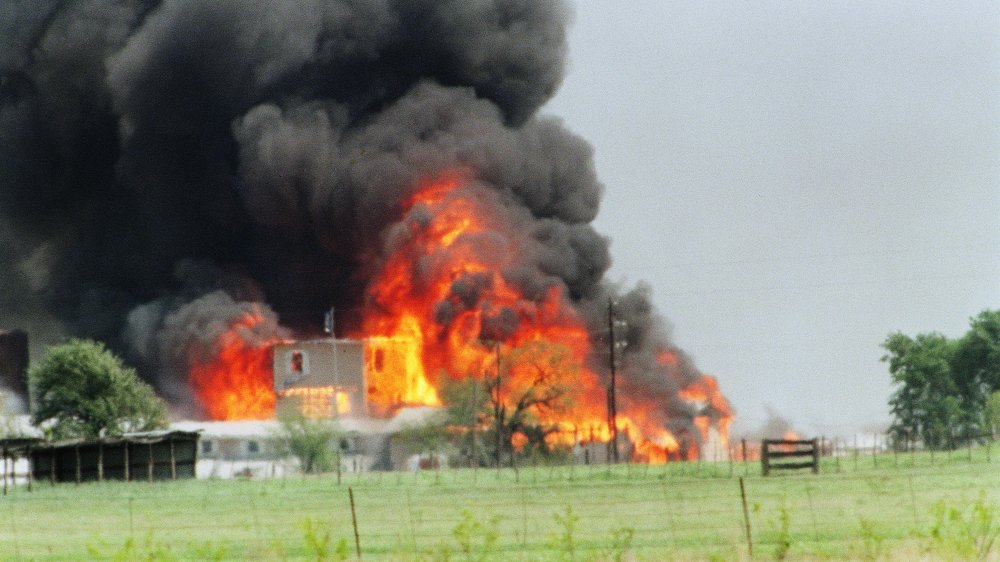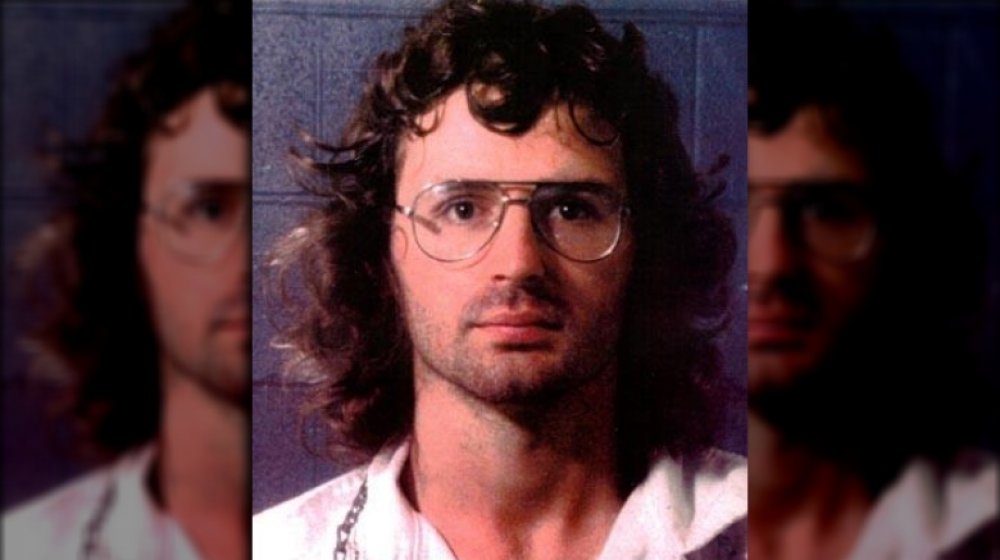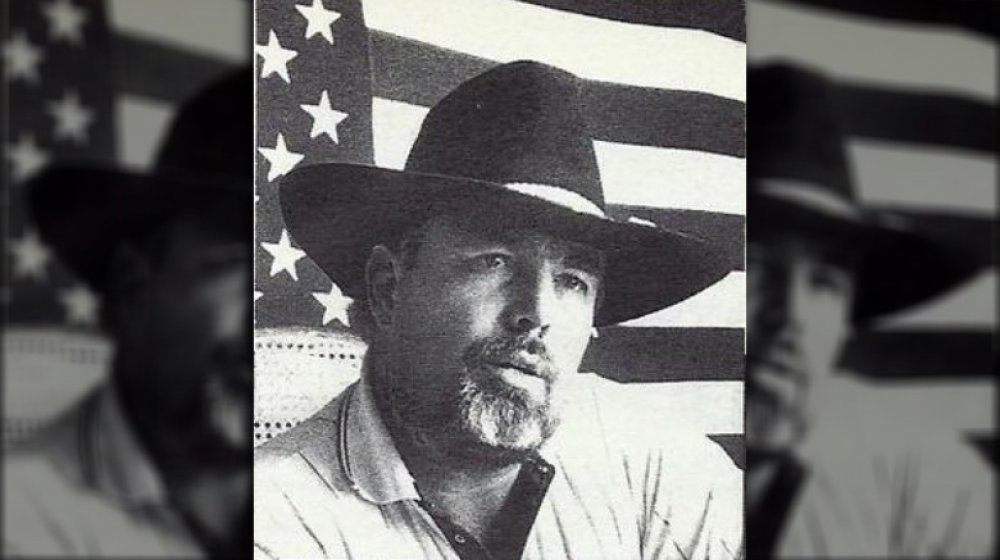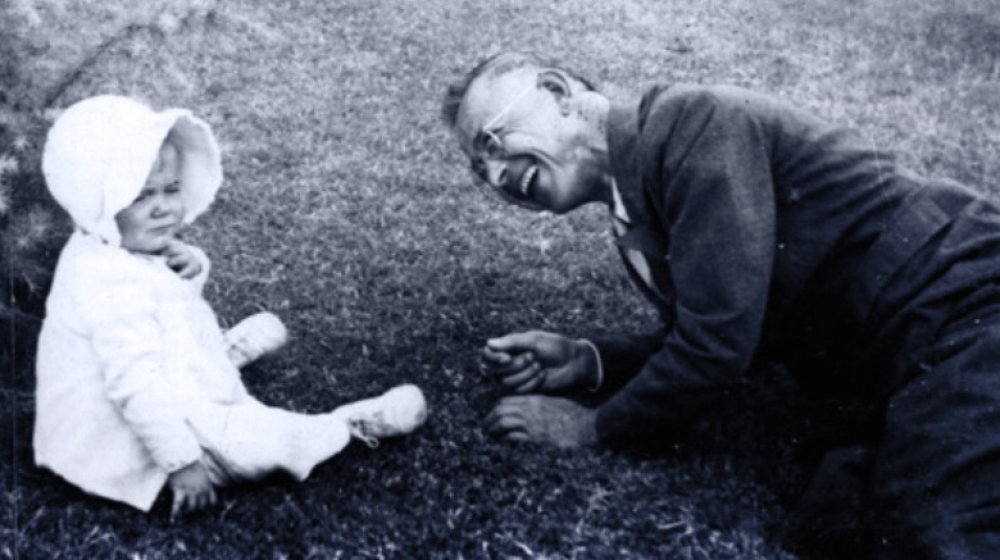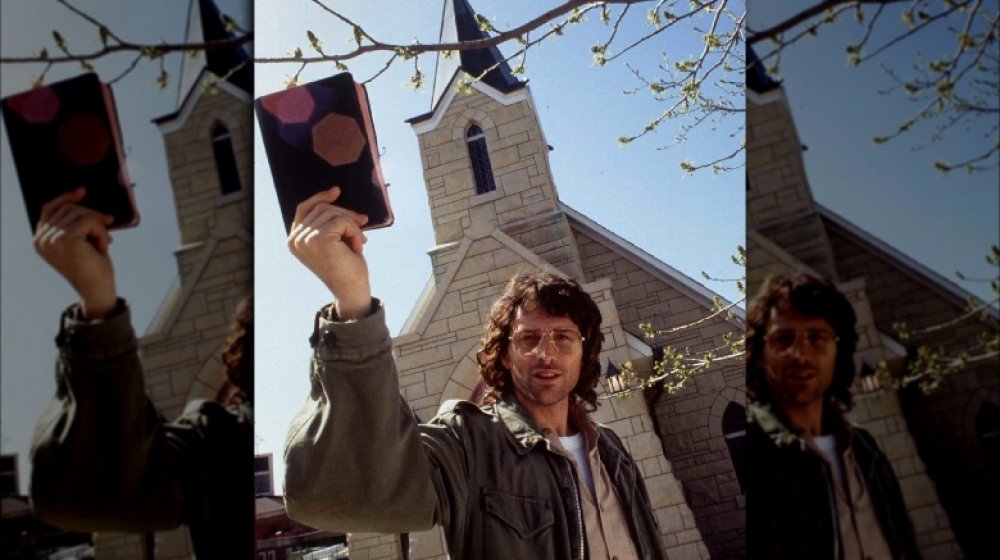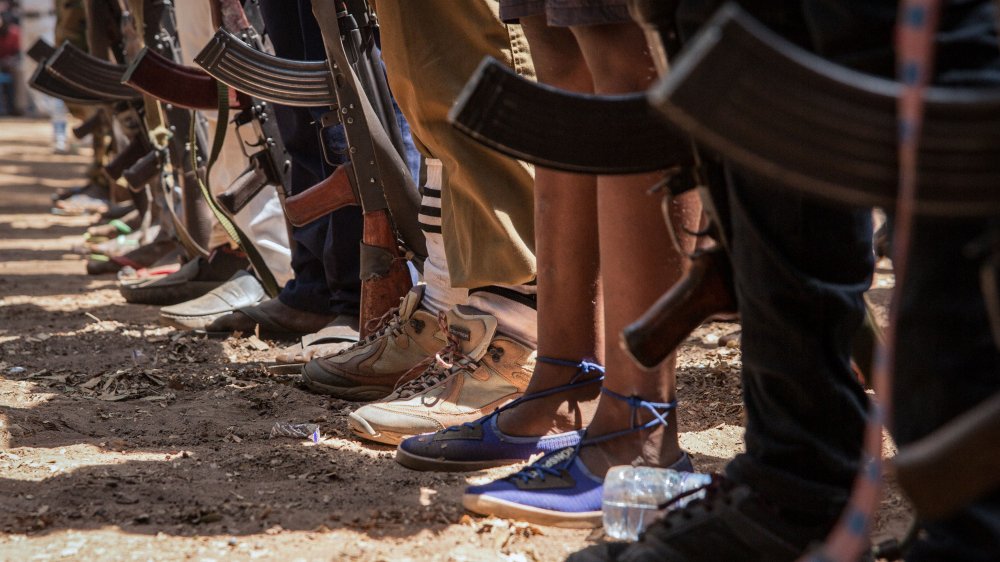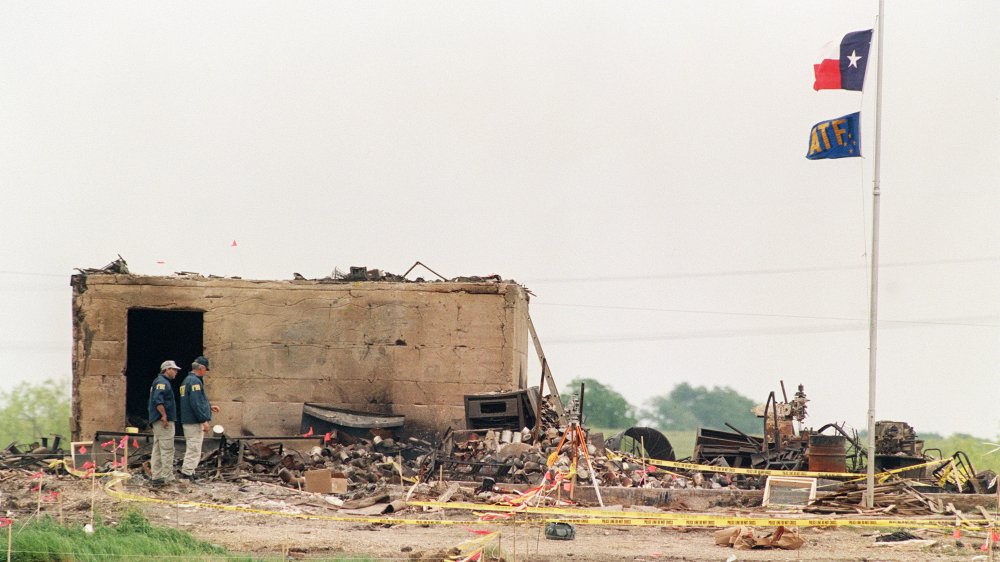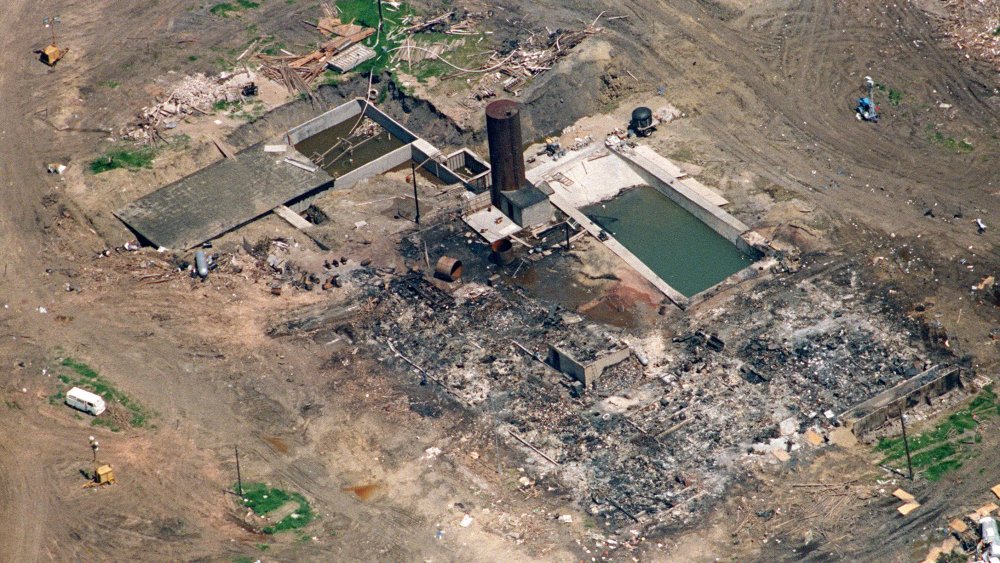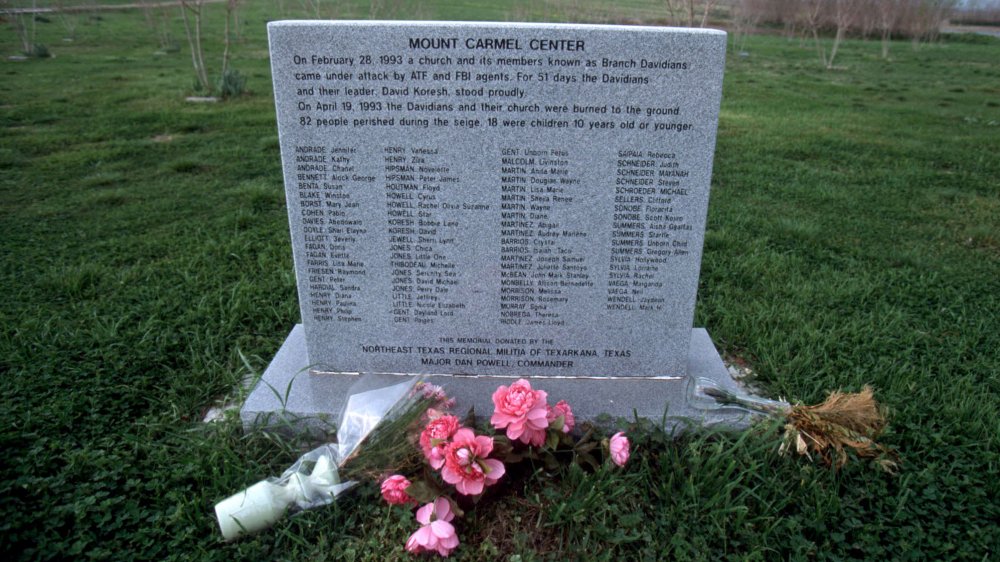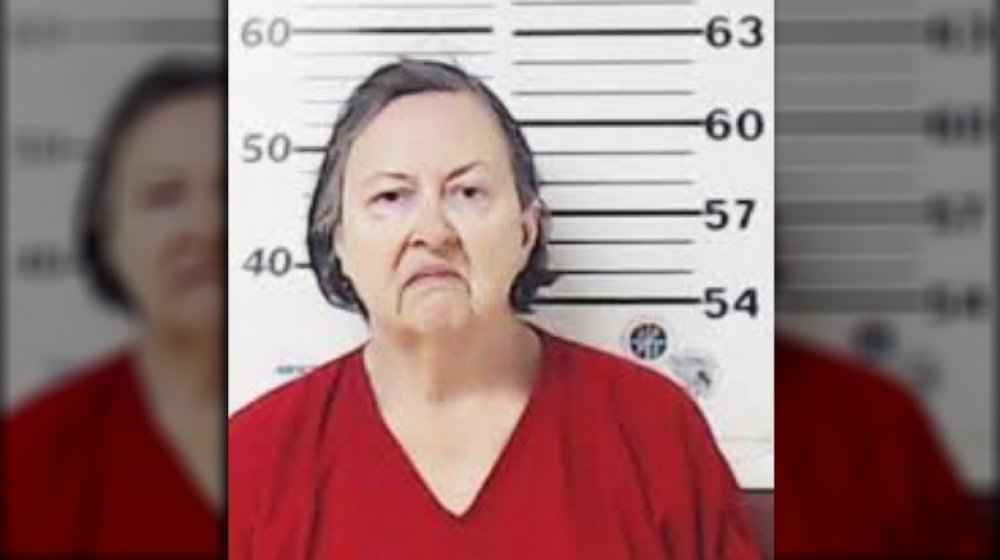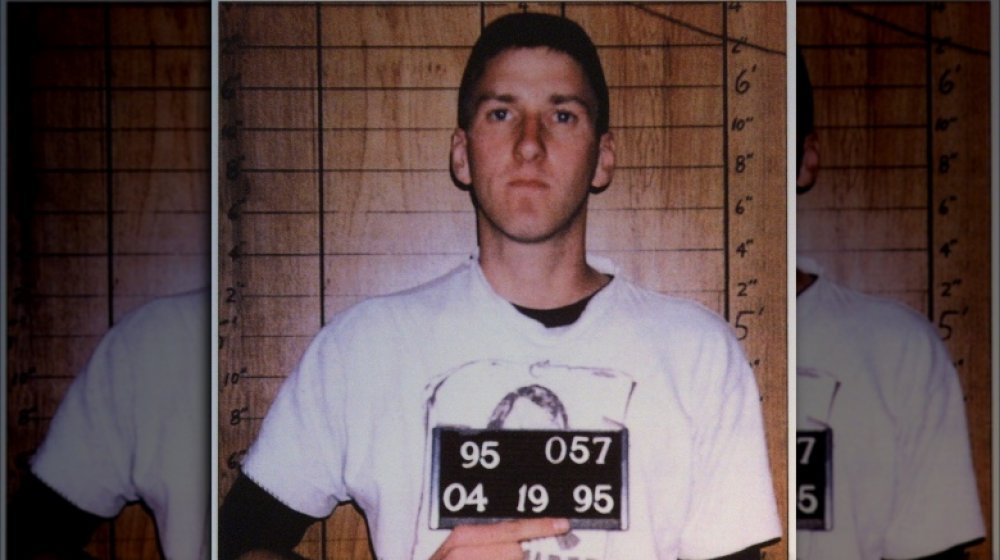The Waco Siege Was Worse Than You Think
When you hear the name "Waco, Texas" you probably don't think about the beautiful Brazos River or the Cameron Park Zoo, or the Dr. Pepper Museum. You think of one thing and one thing alone: The siege at the Branch Davidian compound that took the lives of 75 people, including 25 children.
Waco's past will be forever stained by the events of 1993. The siege lasted for 51 days and showed the world just how badly the FBI could mess something up, even when there are a lot of innocent lives at stake. It divided the country into two camps: the "government sucks" camp and the "cults suck" camp, and even today there still isn't a lot of agreement on what went wrong and what could have been done differently. Would a different approach have saved everyone? Was it the carelessness of negotiators that triggered the disaster or was cult leader David Koresh determined from the beginning to die a martyr along with his whole community of devoted followers?
One hundred years from now we'll probably still be arguing about whose fault it all was, but we don't have to argue about just how bad it was. How bad was it? Worse than you think.
The Branch Davidians' leader was messed up from an early age
A cult is only as messed up as the dude who leads it. That's how cults become cults — some guy (or gal) with a ton of charisma, a desire to be worshiped, and a talent for manipulation rises to power within a small group of vulnerable people, convinces them that he's God's voice or something of a god himself, and then he can get them to do just about anything. Sadly, cult leaders don't usually use their powers for good, so you won't read a lot of historical accounts about the cult leader who manipulated his followers into cleaning up trash along the highway or bringing clean water to villages in South America. No, it's usually only stuff like "give me your wives and money."
Anyway, it shouldn't be too shocking to hear that David Koresh came from a messed-up family. According to the Washington Post, his mother Bonnie was just 14 when she became pregnant with him. His father was never in his life at all, and when he was 18 months old his mom handed him over to her mother to raise. By the time he was five, Koresh was back with his mom and her new husband, who had an old-school style of disciplining the kids. "When I used to act up ... We got our tails whomped," Koresh later told an Australian film crew. So stability was not a part of Koresh's life, like ever.
We should have seen it coming
Every leader has to rise to power, and before David Koresh rose to become the leader of the Branch Davidians, it was George Roden who ruled the cult. Well, according to the New York Times, Koresh wasn't especially fond of Roden, who he saw as squatting on his property, so he got a bunch of friends together and they invaded the sect commando-style, dressed in camouflage military uniforms and carrying military-style weapons. There was a gun battle, Roden was shot in the hand, and Koresh was able to seize control of the cult.
So how exactly does something like that happen without consequences? Well, there was a trial, but none of the eight attackers was convicted of a crime. David Koresh claimed he'd been aiming at a tree, not at Roden, and the jury believed him, or at least enough of the jury to result in a deadlock. In fact, the jury believed Koresh so much that a few of them actually hugged him at the end of the trial. Now that's charisma. And even though authorities found enough guns on the compound to "hold off the entire McLennan County Sheriff's Department," no one was convicted of a felony, so Koresh and his cronies got to keep their guns.
So why didn't the assistant district attorney decide to try David Koresh a second time? He never really said, but he did once complain that he'd been "a black man trying to prosecute seven white men in a Southern town called Waco." Oh.
Don't feel too sorry for George Roden
As it turns out, David Koresh was just one manipulator in a long line of manipulators who ruled the Branch Davidians. According to Britannica, first there was Victor Houteff (pictured), who established the Waco group in 1935. Then there was his wife Florence, who predicted that April 22, 1959 would mark the dawn of the "new messianic age." When that doomsday didn't happen, the movement split into several factions, one of which was led by a man named Ben Roden. Ben was smart enough to tell everyone that Christ's return would depend on them all being "morally mature," which pretty much absolved him of the responsibility for being right about dates. When Ben Roden died, his wife Lois took over. When Lois died, her son George took over.
In 1993, the Washington Post reported that one of the factors leading to the standoff between George Roden and David Koresh was the question of which one of them would be able to successfully raise a 20-year-old corpse. Spoiler alert: neither one of them could.
Even before that, George had been a less-than-upstanding citizen. He was sentenced to six months for asking God — in a legal motion — to inflict AIDS and herpes on judges. Two years after the gunfight with David, George murdered one of his supporters with an ax, evidently because the man was yet another rival claiming to be the true messiah.
David Koresh was Vernon Howell
David Koresh wasn't born David Koresh, which by itself isn't exactly sinister. Plenty of celebrities change their names, and most of them have good reason. Would Freddie Mercury have sold as many albums if he still used the name Farrokh Bulsara? Maybe not.
David Koresh wasn't exactly a celebrity, but he was pretty famous inside his own little cult. Still, local fame was probably not the only reason why he decided to change his name. Born Vernon Howell, PBS says in childhood he'd been relentlessly teased by kids calling him "Vernie," so he had good reason to hate his name. It wasn't until he was officially in control of the Branch Davidians that he decided a new moniker was in order, though, and here's where it gets a little weird. Koresh wanted a name that implied divinity, so in 1990 he chose "David" to drive home the point that he was the heir to the throne of King David. Koresh, he told his followers, meant "death," so take that how you want to. From 1990 to 1993 Vernon Howell lived as David Koresh, and that's how he died, too.
David Koresh engaged in a little mental-torture on the side
Cult leaders have all sorts of sordid techniques they use to control their subjects and brainwash them into doing ill-advised things like drinking phenobarbital-laced vodka so their spirits can teleport to an alien spacecraft hidden behind a comet. David Koresh, too, subjected his followers to some messed-up stuff, like 19-hour-long sermons. He also verbally abused his followers, and his sermons could be terrifying. Grace Adams, who joined the cult in 1990 after traveling all the way from New Zealand, told CBS News that she watched him preach with a boat paddle. "He was yelling and screaming and cussing," she recalled. "He had ... a boat paddle and he was hitting that boat paddle on the [hospital bed where he was standing]."
Koresh often separated parents from their children, which is a special kind of torture. He wanted the kids to put him first, so he'd remove children from the care of their mothers if he felt the mother/child bond was too strong.
David Koresh also told his followers that the world outside the compound was full of bad people. When he thought they were misbehaving, the punishment was severe. Grace Adams says she was locked in a 10 x 8 foot room for four months and fed from a bowl on the floor. Koresh finally let her go, but only when he discovered that her visa had expired. Can't have immigration knocking on the compound door.
Then, David Koresh decided that all the world's women belonged to him
According to CBS News, a revelation came to David Koresh in 1989, and was called "The New Light," which sounds lovely and holy and everything but was really just a pretty name for his self-professed right to be the only dude on the compound who was allowed to become a dad. Also, his relationships with his many wives didn't have to be consensual. That was okay, though, as far as Koresh was concerned, because any woman who got to know him in the biblical sense of the word got to have a golden ticket to heaven, so it was a win-win in his eyes.
So yeah, David Koresh basically dissolved all the marriages on the compound and claimed all the women as his own. This didn't just include the adult women, either. Koresh had a number of teenage "wives" and some who were even younger than that. In 2003, one woman claimed she'd married Koresh when she was 10.
Being a kid on the Waco compound was especially miserable
Every childhood has its ups and downs, but if you were a kid on the Branch Davidian compound, it was mostly downs. "There's nothing that you could do right," Joann Vaega told ABC News. Vaega was just six when she escaped the Branch Davidians. "That fear, that nothing you can do is going to be good enough. You're raised with just fear. Everywhere is fear." The kids existed under constant threat of a wooden paddle called "the helper." To prepare for the battle at the end of the world, they were often made to fight each other. The boys would get up at 5:30 am for "gym," which was really just military training.
In the early days of the siege, David Koresh allowed a few of the children to leave the compound — not his own, though, because they were, in his mind, the sons and daughters of the Messiah. Anyway, most of the kids who were released spoke about their parents as if they were already dead, and they seemed almost fine with it. "Everyone is going to die," they told investigators. Some of them said things like, "We're going to blow you all up." Still, these kids were so brainwashed they claimed to love David Koresh, despite the horrible things they'd experienced in the compound. "Fear is what it was," said Bruce Perry, a psychiatrist who worked with the kids after their release. "They learned to substitute the word 'love' for 'fear.'"
The government messed up at Waco
There's no question the government badly screwed up the Waco incident. There are a lot of reasons why, but one of the biggest is because there were two teams working to end the crisis — the FBI and the Hostage Rescue Team (HRT) — and they did not agree on the best way to do things. Now, disagreeing on the best way to do things is fine if you're sitting around a table in a boardroom discussing the latest television commercial for your product, but when people's lives are at stake, those kinds of major disagreements can have tragic consequences.
According to PBS, the FBI favored a chill approach. Tread lightly, be patient, spend lots of time talking to the people in the compound. The HRT apparently wanted to take the opposite approach. So while the FBI was engaged in careful negotiation, the HRT was blasting loud music into the compound and crushing Branch Davidian vehicles. Which means negotiations came down to a battle of philosophies: "Hey, if you come out we'll treat you well" vs. "Hey, if you don't come out we're going to drive you nuts with loud music and destroy all your stuff." With those kinds of mixed messages, it's not shocking that the Davidians were confused and desperate and not really willing to negotiate with either team.
The fire probably started inside the Branch Davidian compound
One of the many things there's still a lot of disagreement about is who was at fault for the fire that ultimately ended the standoff and snuffed out the lives of 75 people. According to ABC News, survivors still say the FBI was responsible for the fires. A Congressional investigation decided otherwise. There were bugs inside the compound that captured the Branch Davidians saying things like "Start the fire?" and "David said pour [the fuel] right?" so that does kind of seem like a smoking gun. And aerial footage showed three fires starting in simultaneous locations within the compound. On the other hand, in 1999, the FBI admitted they used tear gas grenades that day — and tear gas grenades can also cause fires.
Regardless of where and who set the fire, the results were catastrophic. David Koresh sent the children with several women to a bunker located on the bottom level of the compound, where they all perished. Meanwhile, the people on the upper levels faced fire and tanks, which were being driven through the walls of the compound. One of the nine survivors escaped through a hole blasted through the wall by one of the tanks, but it was too late for the people behind him. "I could hear some of the ones that were further back into the building behind me screaming," he later recalled. "I thought, 'Nobody's getting out of there now.'"
Smoke inhalation killed most, but not all of the victims at Waco
Of the 33 bodies found inside the bunker, 25 were children. "Most of them had died as a result of smoke inhalation or suffocation," medical examiner Nizam Peerwani told Frontline in 1995. "A couple of them had died as a result of blunt trauma due to collapsing debris ... but there were at least three kids who had been shot to death. And one was stabbed to death."
Outside the bunker, people also died from smoke inhalation, but a few had much easier deaths — including David Koresh himself and his right-hand man, Steve Schneider. Both men were found inside the compound's "communication room." Koresh died from a gunshot wound to the forehead; Schneider from a gunshot wound to the mouth. No one is really sure who shot who.
Gunfire was heard coming from inside the compound during the fires, and this is where there's still a lot of disagreement. Federal agents claimed that the Davidians were killing each other, either to avoid the horror of dying in a fire or because David Koresh had ordered the killing of those who tried to escape. Survivors still vehemently deny that either one of those scenarios is true, which basically just means that we're never going to know exactly what happened.
The Waco tragedy still resonates
A lot of people were left broken after the events of Waco. The kids who escaped the compound before its tragic conclusion grew up with the scars of everything they'd experienced while they were inside. And those who knew the victims didn't exactly move on, either. "I don't think I will ever rest in my heart," David Koresh's mother Bonnie Haldeman told the press after his funeral. "I didn't get to see the body, and I'm not even positive that is David [in the grave]."
Haldeman's life ended tragically, just like her son's did. In 2009, CBS News reported that she'd been found dead in her sister's home. She was 64, but she hadn't died peacefully in her sleep or anything — she'd died from stab wounds. Worse, Beverly Clark, her younger sister, was accused of the murder.
Clark was arrested but found incompetent to stand trial, so she was moved to a medical facility where she remained for nearly nine years. Her case wasn't resolved until 2018, when attorneys finally agreed that she'd been insane when she killed her sister.
Bomber Timothy McVeigh said he was inspired by Waco
The government's mishandling of the Waco incident upset a lot of people. Many of those people tried to make things better, by examining what government agents had done wrong and thinking about how they could change policy and procedure to avoid similar tragedies in the future. Others decided they were going to make a statement with violence instead.
According to History, infamous Oklahoma City bomber Timothy McVeigh was so incensed by the government's handling of the Waco incident that he chose the second anniversary of the Waco siege as the date for his attack on the Alfred P. Murrah Federal Building in Oklahoma City. The bombing, McVeigh said before his execution in 2001, was retribution for the killings at Waco (he also cited the Ruby Ridge incident, in which federal agents killed two people during an 11-day siege, as inspiration).
One hundred and sixty-eight people died during the Oklahoma City bombing, including 19 children. Up until that date, it was the worst terrorist attack on U.S. soil. The irony of killing innocent people to avenge innocent people seemed to be totally lost on Timothy McVeigh, who never expressed remorse.
